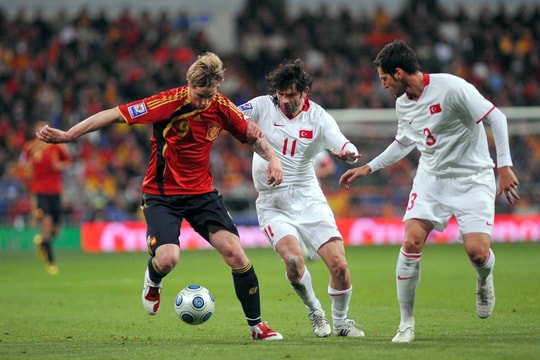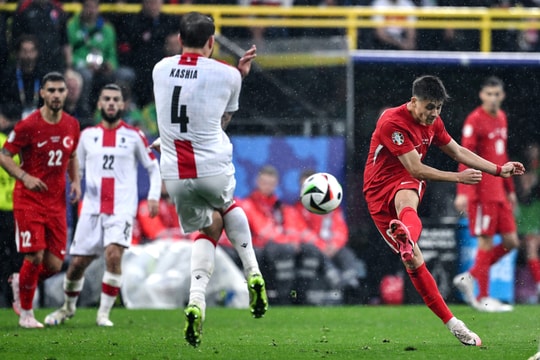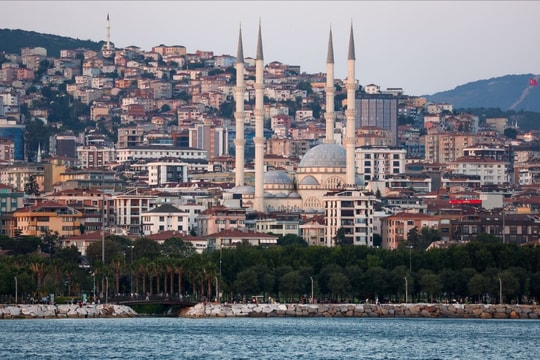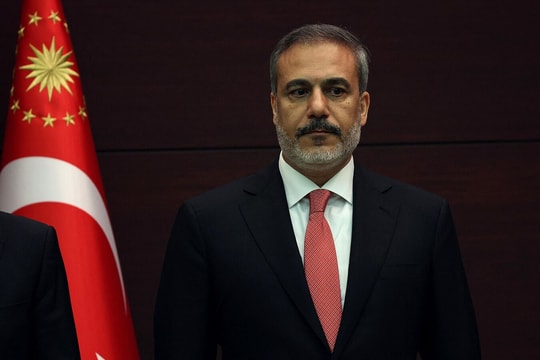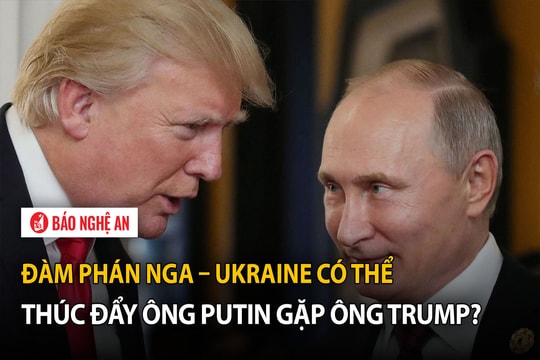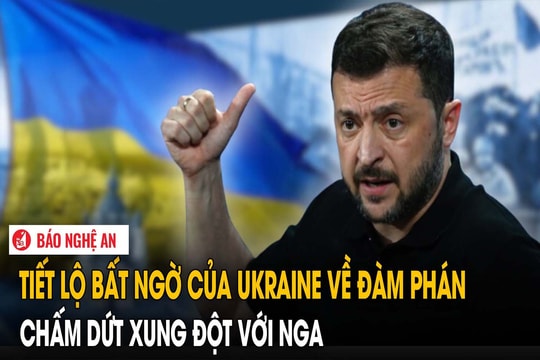Why Türkiye refuses to apologize to Russia
The Turkish President's tough statements are believed to stem from the realization that Russia will not be able to push the situation out of control.
 |
Turkish President Recep Tayyip Erdogan. Photo: Reuters |
On November 27, Turkish President Recep Tayyip Erdogan declared that Russia was "playing with fire" when it carried out airstrikes on oil and supply convoys in the Syrian border area, where Turkish-backed Turkmen rebels are operating. He also refused to apologize to Russia for the downing of the Su-24, saying that the Turkish air force had "done its duty".
Observers say the above statements partly reflect Mr. Erdogan's personality, but it is also a sign that Türkiye has calculations that Russia will not be able to push the situation too far after the plane was shot down, according to Le Monde.
Scholar Giray Sadik of Yildirim Beyazit University in Ankara said that President Erdogan's tough stance shows the calculations of this experienced politician. It seems that Mr. Erdogan has calculated the level of response from Moscow, and judged that Russia will not be able to escalate the situation beyond control and lead to war, because it would be more disadvantageous for Russia than Türkiye, in the context of deteriorating relations between Russia and the West.
Russia’s biggest fear in the event of war is that Türkiye would immediately close the Dardanelles Strait in the northwest of the country, the shortest route from the Black Sea to the Mediterranean, so that Russia can supply its forces in Syria. According to the Montreux Convention, which sets out international rules for the use of straits, Turkey can close the strait if the two countries are at war.
Ian Bremmer, President of the Eurasia Group (USA), said that Mr. Erdogan's attitude shows that he understands that Russia will not benefit from reacting too strongly. President Putin is currently preoccupied with many other important geopolitical goals.
Isabelle Facon, an expert at the Foundation for Strategic Research, analyzed that by declaring that there was no reason to apologize to Russia for shooting down the Su-24, it seemed that Mr. Erdogan had accepted to trade off the Russia-Turkey relationship to force the world to pay attention to Ankara's role on the Middle East political chessboard in general and Syria in particular.
"Since Russia began its airstrikes in Syria, Türkiye's role in the region has been largely ignored. This is an unacceptable embarrassment for an ambitious politician like Erdogan," Falcon assessed.
According to Falcon, President Erdogan's tough stance shows that he wants to affirm that Türkiye is a big country, and that relevant parties, including the US and NATO, who want to intervene in the Middle East cannot help but consider Turkey's role as they have done in the past.
 |
Dardanelles Strait. Graphics: Quickgs |
Grasp Russia's weaknesses
Mr. Julien Nocetti, an expert at the French Institute of International Relations, said that Erdogan's tough stance shows that Türkiye seems to have "got Russia's finger" and believes that even if Russia reacts strongly, this will not have too negative an impact on the relationship between the two countries. Because Russia and Türkiye have many economic interests that cannot be ignored, and Russia, in any case, will prioritize avoiding a serious breakdown in relations with Türkiye.
Turkish energy expert Necdet Pamir stressed that the current situation is unlikely to go further because Moscow does not want to affect the energy policy it is pursuing with Ankara.
Following tensions over Ukraine, Russia is studying the construction of a new gas pipeline through Türkiye, with the aim of making Türkiye a major transit country for Russian gas to Europe. Mr. Pamir said that in the future, Russia will continue to sell gas to Turkey despite the deterioration of relations between the two countries.
Russian Deputy Energy Minister Anatoly Yanovsky has confirmed that Russia will continue to supply gas to Türkiye according to commitments in old contracts, according to Le Monde.
"As time goes by, things will return to normal. What is important is that Mr. Erdogan has shown his voice to the people in the country as well as a part of the Turks living in the Syrian border area, adjacent to Turkey," Mr. Nocetti emphasized.
After the Su-24 was shot down, in addition to the currents of thought that Turkey needs to be severely and uncompromisingly punished, many expert opinions appeared in the Russian media that tended to ease the situation and draw Turkey closer to Russia.
These experts assess that the geopolitical and religious goals of Russia and Türkiye are not necessarily contradictory, and are even quite closely related. An important component of Russian culture has a Turkish element, originating mainly from the Tatars.
Nurettin Altundeger, Vice President of the Center for Law, Ethics and Politics in Ankara, said that Erdogan seemed to be aware of Turkey's indispensable role for Russia in its strategy to prevent the formation of an anti-Russian alliance that is threatening to emerge in Europe after the Ukraine crisis.
"This perception has allowed President Erdogan to be confident enough to show a tough stance, but the goal is not to challenge Russia, but to seek more respect from Moscow for its role in the Middle East," Mr. Altundeger emphasized.
 |
Russia's S-400 missile system is brought to Syria. Photo: RT |
According to VNE

